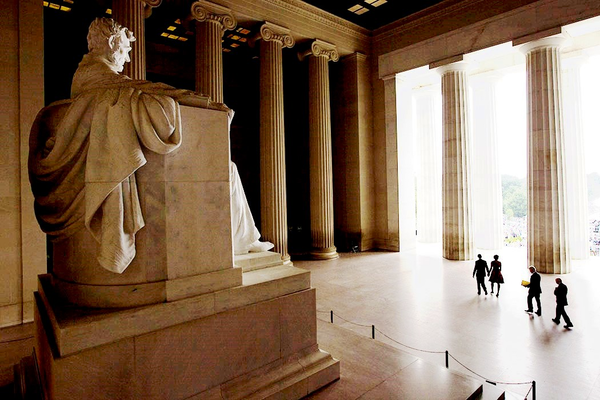Lincoln – not Pilgrims – responsible for Thanksgiving holiday

Most Americans believe that the Thanksgiving holiday originated with New England’s Pilgrims in the early autumn of 1621 when they invited the Wampanoag Indians to a feast to celebrate their first harvest.
However, the Pilgrims’ Thanksgiving was actually a continuation of a European agricultural tradition in which feasts and ceremonies were held during harvest time.
In fact, President Abraham Lincoln established the holiday in 1863 as a permanent fixture on the calendar to celebrate Union victories in the Civil War and to pray to God to heal a divided nation.
Prior to 1863, the U.S. government informally recognized periodic days of thanksgiving. In 1777, for example, Congress declared a day of thanksgiving to celebrate the Continental Army’s victory over the British at Saratoga. Similarly, President George Washington, in 1789, declared a day of thanksgiving and prayer to honor the new Federal Constitution. But it took the national trauma of a Civil War to make Thanksgiving a formal, annual holiday.
With the war raging in the autumn of 1863, Lincoln had very little for which to be thankful. The Union victory at Gettysburg the previous July had come at the dreadful human cost of 51,000 estimated casualties, including nearly 8,000 dead. Draft riots were breaking out in northern cities as many young men, both native and immigrant, refused to go to war. There was personal tragedy, too.
Lincoln and his wife, Mary, were still mourning the loss of their 11-year-old son, Willie, who had died of typhoid fever the year before. In addition, Mary, who was battling mental illness, created tremendous emotional angst for her husband.
Despite - or perhaps because of - the bloody carnage, civil unrest and personal tragedy, Lincoln searched for a silver lining. Sarah Josepha Hale, editor of Godey's Lady's Book, provided the necessary inspiration.
Hale, who had been campaigning for a national Thanksgiving holiday for nearly two decades, wrote to the president on September 23 and asked him to create the holiday “as a permanent American custom and institution.”
Only days after receiving Hale’s letter at the White House, Lincoln asked his Secretary of State William Seward to draft a proclamation that would “set the last Thursday of November as a day of Thanksgiving and Praise.”
On October 3, the president issued the proclamation, which gave “thanks and praise” to God that “peace has been preserved with all nations, order has been maintained, the laws have been respected and obeyed, and harmony has prevailed everywhere, except in the theater of military conflict.”
Unlike other wartime presidents, Lincoln did not have the arrogance to presume that God favored the Union side. Instead, he acknowledged that these “gracious gifts” were given by God, who, while dealing with us in anger for our sins, hath nevertheless remembered mercy.
Lincoln also asked all Americans to express thanks to God and to “commend to His tender care all those who have become widows, orphans, mourners or sufferers in the lamentable civil strife,” to “heal the wounds of the nation,” and to restore it as soon as may be consistent with Divine purposes to the full enjoyment of peace, harmony, tranquility and Union.”
Since 1863, Thanksgiving has been observed annually in the United States. Congress insured that tradition by codifying the holiday into law in 1941, days after the U.S. entered World War II.
At a time when we are struggling with the volatile issues of race, immigration and the impeachment of a president who has divided the nation along partisan lines, Lincoln’s Thanksgiving proclamation reminds us of the necessity to put aside our differences, if only for a day, and celebrate the good fortune that unites us as a people regardless of ethnicity, race or creed.
Perhaps then we can do justice to the virtuous example set by Lincoln, who urged us to act on the “better angels of our nature.”